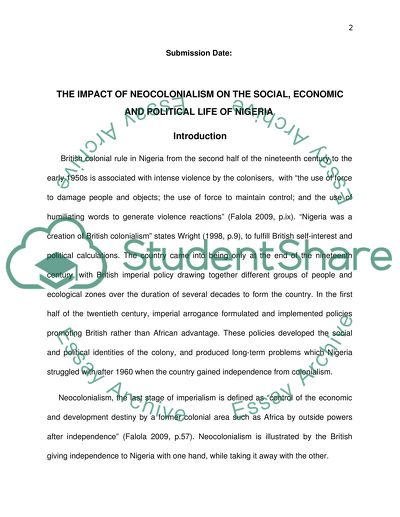Cite this document
(“The Impact of Neocolonialism on the Social, Economic and Political Essay”, n.d.)
Retrieved de https://studentshare.org/history/1447018-the-impact-of-neocolonialism-on-the-social-economic-and-political-life-of-nigeria
Retrieved de https://studentshare.org/history/1447018-the-impact-of-neocolonialism-on-the-social-economic-and-political-life-of-nigeria
(The Impact of Neocolonialism on the Social, Economic and Political Essay)
https://studentshare.org/history/1447018-the-impact-of-neocolonialism-on-the-social-economic-and-political-life-of-nigeria.
https://studentshare.org/history/1447018-the-impact-of-neocolonialism-on-the-social-economic-and-political-life-of-nigeria.
“The Impact of Neocolonialism on the Social, Economic and Political Essay”, n.d. https://studentshare.org/history/1447018-the-impact-of-neocolonialism-on-the-social-economic-and-political-life-of-nigeria.


